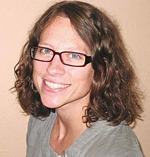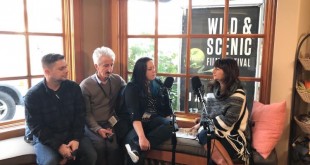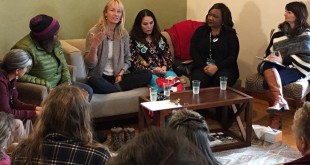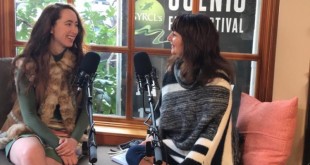What is the mission of Women’s Voices for the Earth?
We are a national organization, and our mission is to work to eliminate toxic chemicals that impact human health by changing consumer behavior, corporate practices and government policies. Our ultimate goal is to create a world in which women can go into the store and pick up their favorite products and not worry that it’s laden with toxic chemicals.
Or that they can live in any neighborhood and not be concerned that there is a factory nearby pumping toxic chemicals into the environment. We have been successful in closing down seven polluting incinerators in Montana and Idaho.
At what level is the FDA or EPA protecting us from these toxins in our products?
The reality is that most of the chemicals used in the marketplace right now have not been evaluated for their safety. There are over 80,000 chemicals in our products that we use every day and have never been evaluated for their long-term impacts on human health. The chemicals that have been evaluated are generally tested on men.
What is a chemical commonly used in products that women tend to use frequently?
P is a chemical that is often found in fragrance. There are many products that contain ph including lotion, shampoo, cleaning products and many other things that you might use on a regular basis. This chemical has been linked to reproductive problems.
What are some tools WVE is offering to consumers?
Most recently we’ve created a tool called the Green Cleaning Party Kit. It’s a fun way to engage women around the toxic chemicals in their cleaning products. The kit provides information on how to organize your own party, make non-toxic cleaning products and learn about the toxic chemicals in these commonly used products. The party is also a get-together to talk about ways you can advocate to make sure products are safer in the long run. To date over 1,200 women across the country have hosted these parties.
What is the power we have as consumers?
We are an incredibly powerful consumer group because women make an estimated 80 to 85 percent of the household purchasing decisions, which means it’s our money supporting these companies. We did a local effort in Montana and Idaho where we asked Albertsons, a large supermarket chain, to post warning signs about the dangers of consuming too much fish contaminated with mercury.
We sent postcards, made phone calls and coordinated protests, and immediately the management changed their policy. They are posting this information nationwide in 1,000 plus stores. Another example is when women called in to say they were concerned about what’s in SC Johnson and Sons (the maker of Windex) products and that they don’t disclose the ingredients. As a result, SC Johnson announced that they would disclose the ingredients on their Web site and on the product label starting in 2012.
How do our standards around chemicals in our products in the United States compare to standards in other parts of the world like Europe?
In the European Union, they have banned 1,100 chemicals for use in products. The United States has only banned five of these chemicals. The EPA doesn’t have the authority it needs right now to really evaluate chemicals. We’d like to see a manufacturer prove that a chemical has to be safe before it’s put into a product. There is a piece of legislation in congress right now, the Safe Chemicals Act that would aim to do just that.
How did you become personally involved in WVE?
I have always been interested in the intersection between social justice and the environment. I met the women of WVE through my former work advocating for fair and just trade policies – ones that protect the environment and contribute to sustainable communities. I was inspired by the women I met and knew that this was an organization I wanted to invest my time and passion into.
Why is the work WVE is doing so important to everyday women?
As the primary consumer and caretaker, women need to raise their voice collectively and recognize that we are going to make a difference and that we can impact policies on a broader level if we ban together.
What is your message to women around the world?
Your voice matters, and sometimes it does seem daunting to take on a massive corporation or to impact a federal policy, but even small actions that we take really add up. It’s been interesting to see that an organization of our size really could make an impact on corporations, like SC Johnson and Son or Clorox. The power of speaking up is incredible. We can do it!
See Jane Do is a multimedia program capturing the stories of everyday women doing extraordinary things for the planet. Catch the one-hour talk radio program on KVMR 89.5FM the first Wednesday of every month at 1 p.m.
Five things you can do today to get involved:
- Visit the website and support one of their campaigns.
- Find alternative products to those that use synthetic fragrances (ph)
- Make your own green cleaning products: one part vinegar and one part water is a great one-purpose spray and a cheap solution.
- Write a letter to your representatives to pass policies that will protect us including The Safe Chemicals Act.
- Tell your friends!
 See Jane Do Everyday Women Doing Extraordinary Things
See Jane Do Everyday Women Doing Extraordinary Things







